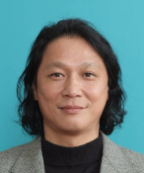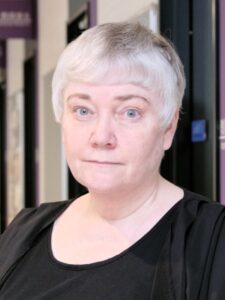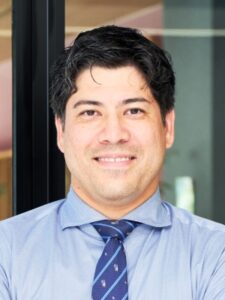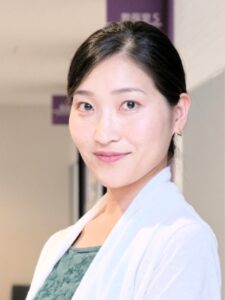Curriculum Policy
Common Policy
Through providing language education, the Department of English Education will foster students who continue to think together to build a society where diversity is respected. Specifically, students are encouraged to:
1. Continue to learn autonomously and creatively
- Acquire a broad range of knowledge
- Manage their own learning
2. Appropriately use information
- Use ICT (information communication technology) and other means, to collect information appropriately
- Evaluate and analyze information critically from multiple perspectives
3. Collaborate while respecting others
- Respect and try to understand ideas that are different from his/her own, and be flexible
- Work together for a common purpose
Curriculum policy
The curriculum of English education by the Language Center is designed to foster interest and motivation in learning English, through communicative language teaching (CLT). The curriculum is focused on improving English language ability, and other important skills that students need to prepare themselves for their future studies, research, careers, and personal lives as active participants in a global society.
- English classes build on students’ existing language skills with vocabulary, grammar, listening, reading, writing, and speaking, as well as encourage students to become independent learners who develop their English skills beyond the classroom.
- Through presentations, students will establish and develop skills of researching, teamwork, writing, preparing visual aids, and presenting, which are necessary in their future professional activities.
- We provide students with a learning environment which fosters development of English language communication skills, builds awareness of global issues, and encourages discussion and participation in global activities in their careers and personal lives.
Instructors
Snr. Assis. Prof. Yojiro Hemmi

Field of Expertise / Interest
English: Second Language Acquisition, Applied Linguistics, TOEFL, TOEIC Test Preparation
Education: Cross-Cultural Communication, Leadership Development
Physical Education: Sports physiology (Core Exercise, Muscular Endurance, Blood Lactic Acid, Muscle Fiber Regeneration), Coaching Science
Medicine: Sports Medicine (Acute Sports Injuries, Chronic Sports Injuries and their Prevention/Palliative Care)
Message
Many people have probably experienced something like this: “Even though I’ve studied vocabulary and grammar quite a bit, when it comes to actual conversation, English doesn’t come out. Despite studying English for years, conversations end with just ‘Yes,’ ‘No,’ or ‘Thank you.'” During your time at Fukui University, let’s transform the “knowledge of English” you’ve cultivated so far into “usable English” by repeatedly outputting it in order to become proficient English speakers.
Snr. Assis. Prof. Laura Kobata

Field of Expertise / Interest
English Literature, Asian American Literature, Composition, Gender and Identity Studies, Communicative English
Message
In today’s global economy, the intersection of different disciplines and skills has produced a multitude of opportunities for students to expand and deepen their knowledge in a variety of fields. As an instructor, my main goal is to help students acquire the linguistic and critical thinking skills that will help them succeed in their future endeavors–as contributing members of both their local communities and as global citizens.
Assis. Prof. Richard Eccleston

Field of Expertise / Interest
EFL self-directed learning, videogames in language education, materials development, communication, motivation
Message
In and out of the classroom, I am dedicated to students’ English education. I not only try to increase motivation, but increase students’ willingness to attempt communication, regardless of proficiency, by reminding them that it is okay to make mistakes. Making mistakes can help language learners improve their fluency and accuracy. I use my own experience of learning Japanese as an example. Also, it is important for me that students enjoy English classes, to maintain and increase class participation, so I try to create a fun and interactive environment for language learning and practice.
Assis. Prof. Keith Ikoma
Research Map Researcher Information

Field of Expertise / Interest
Education, Learner motivation, ESL action research, Narrative inquiry, English Literature, Christian theology
Message
English education is a chance to learn practical skills for work, in society, and as global citizens. I hope I can help students meet their learning needs, have a space to enjoy communicating in English, improve self-expression skills, develop confidence in English, and increase their motivation for language learning and use in the future.
My advice to my students: please remember, English classes are YOUR classes, not my classes.
Assis. Prof. Emi Hennessy
Research Map Researcher Information

Field of Expertise / Interest
English as a Foreign Language, Bilingualism as a First Language, Intercultural Coexistence and Intercultural Education
Message
I am interested in language acquisition and education for learners studying English as a foreign language, as well as research on language acquisition and development in multilingual environments, particularly for children. I am also interested in practical efforts towards intercultural community building.
Having studied English as a foreign language like many Japanese students and utilized it as a tool in the society, I aim to create English classes that connect us to the world and expand opportunities for future endeavors. Let’s work together to create classes where we can grow by learning from each other!




